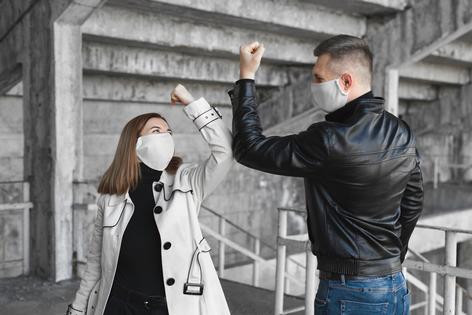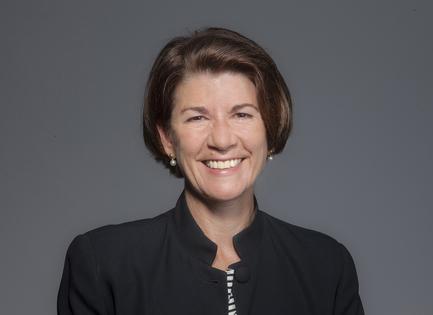Ask Amy: Post-COVID-19 dating will reveal much
Dear Amy: I’m a 55-year-old single male.
Can you look into your crystal ball and tell me what dating will be like for someone over 50, once it resumes, in the age of COVID-19?
Given all the caution afoot in the world (not mine, I’m ready), will I ever find a mate?
— Alone Until I Die?
Dear Alone: This is a great question. I’m going to try to prognosticate.
One thing I can guarantee is a solid conversation-starter: “So — how has the pandemic treated you?”
This lengthy crisis has tested everyone in unforeseen ways, and how people have reacted to this global anxiety is revealing. You should be able to discern fairly quickly if a potential partner is compassionate, concerned, anxious, panicked, denying, angry, balanced (in your opinion), calmly cautious or raring to go. You might learn whether someone is temperamentally optimistic (it sounds as if you are), or gloomy around the edges. You might meet people who are grieving, feeling lonely, cooped-up and sad.
You will likely get to know one another online via videoconferencing before meeting in person (this is a positive post-COVID-19 development). Before meeting in person, you and/or your date may offer or ask for proof of immunity from the virus (if reliable testing becomes widely available). Your first in-person meeting might be held outside, at a distance. You probably won’t shake hands when you greet one another. If you are a disinfector, you might always carry an extra bottle with you, as a gracious gesture to offer to your date. If you don’t routinely disinfect surfaces, but your date obsessively does (or visa-versa), that might be a deal-breaker.
Mask wearers will face a dilemma of whether — or when — to reveal the bottom half of their faces when meeting in person.
And most people (including you) will have learned to cut their own hair.
Dear Amy: My husband and I have played a large role in our nieces’ and nephew’s lives. They had very rough childhoods. Their father died when they were very young, and their mom (my husband’s sister) suffers from a severe and abusive personality disorder. She is estranged from all of her children, and from us.
When they were young, we had “the kids” with us on many weekends and vacations, and as young adults, we housed them through college and single-motherhood.
While they’re genuinely good people, they tell endless white lies, have unpaid debts to us and often lack follow-through on commitments made to us.
We have always attributed their rough childhood to these character traits and remained unconditional in our love for them.
Now that they are 25, 29 and 30 respectively, my heart has turned cold toward them. I resent their disloyal and disrespectful behavior. They are all adults who should know better.
Am I unrealistic in my expectations and my desire to be treated differently by these family members?
— Shutting Down in So Cal
Dear Shutting Down: Loving someone unconditionally does not mean that you sign up to be used and abused by them. Loving someone unconditionally means that you love them anyway.
Reward good and loving behavior with affirmations, positive reinforcement and access to you. Respond to negative behavior honestly, delivering reasonable and proportional consequences.
They borrow and don’t repay you? Don’t give them the opportunity to fail so spectacularly. You either give freely and without expectation, or you tell them they will have to repay their debt before they can borrow again. They openly disrespect you? You say, honestly, “Hey — we know we deserve better than this. You know it too. I trust you to figure out how to be kinder to me. Until then, let’s take a little break.”
It sounds as if you have done a lot for these young adults, but — your great intentions and laudable actions would not completely offset their rough and heartbreaking upbringing.
Dear Amy: “About to Explode!” had a housemate who interrupted all the time.
We have a friend who does the same, and it came to define her (in my mind).
I later learned that she has significant hearing loss in her left ear, and I began to watch the patterns associated with her interruptions.
Much more often than not, those that she interrupted were positioned to her left. Now, I grab a seat to our friend’s right, and I babble away to my heart’s content. People are probably silently BEGGING her to interrupt me!
— Rick
Dear Rick: Several readers have suggested hearing loss as a possible cause for this habit. Thank you all.
========
(You can email Amy Dickinson at askamy@amydickinson.com or send a letter to Ask Amy, P.O. Box 194, Freeville, NY 13068. You can also follow her on Twitter @askingamy or Facebook.)










